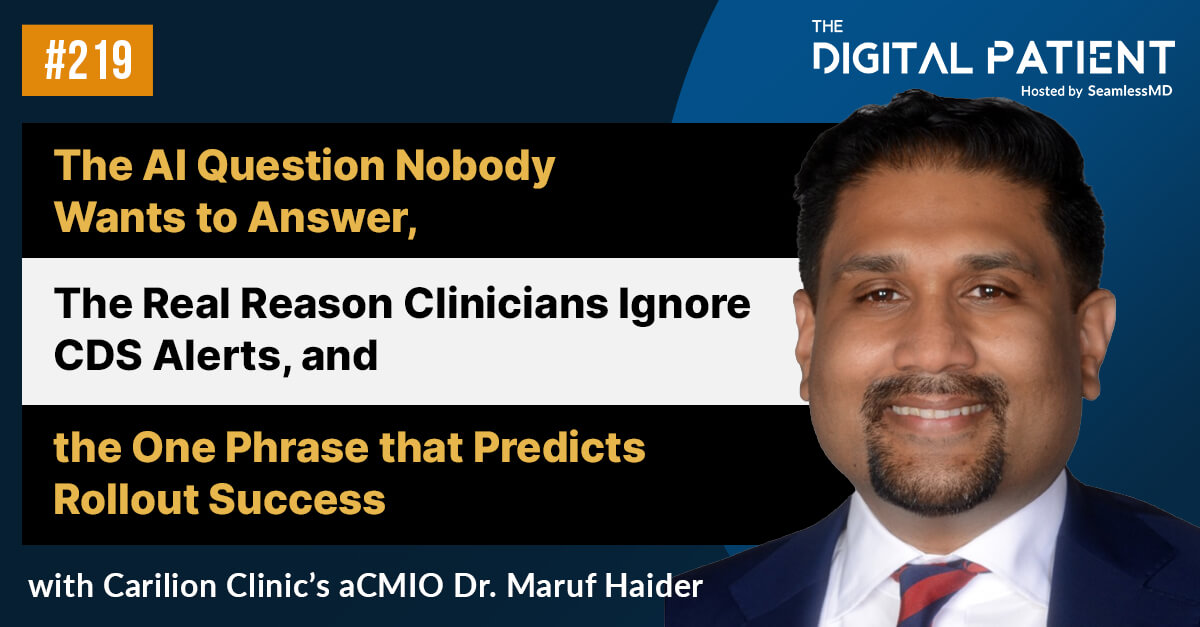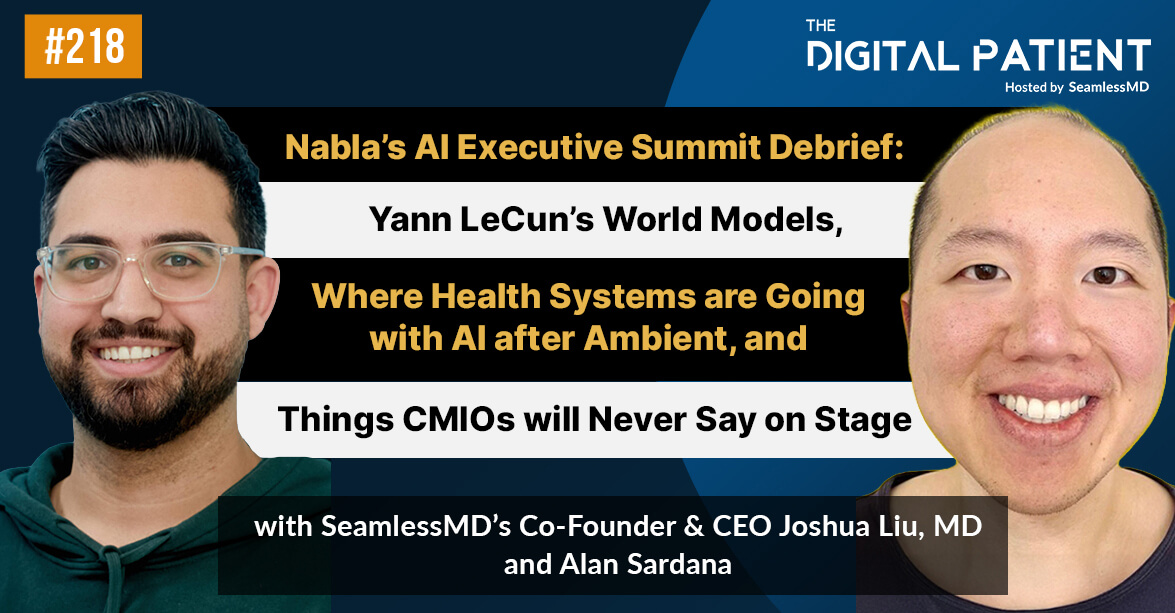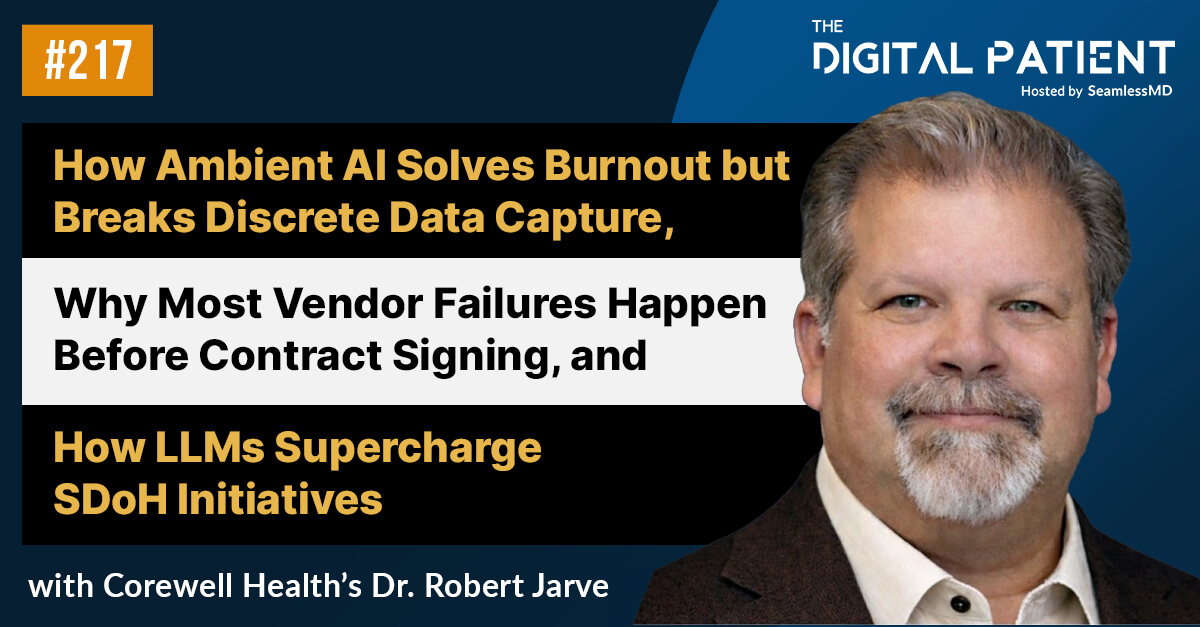The American College of Surgeons’ Clinical Congress is the premier annual event for surgeon leaders to share innovative new research, best practices and technology in surgery to improve patient care. At the 2022 event, many surgeon leaders highlighted how Digital Patient Engagement and Remote Patient Monitoring is gradually becoming the standard of care for delivering the best surgical outcomes and patient experience.
Digital Patient Engagement Augments Enhanced Recovery After Surgery (ERAS) and Same-Day Surgery
It was standing-room only for the session on Ultra ERAS: The Next Generation of Enhanced Recovery programs where the speakers touched on various ways Digital Health enhances Enhanced Recovery After Surgery (ERAS) programs.
Dr. Daniel Chu, ERAS Medical Director and Vice Chair of Health Services Research for UAB Medicine’s Department of Surgery, explored “What’s New in ERAS 2.0”, including:
- New components: Nutrition and anemia screening are relatively new ERAS components
- More benefits: ERAS programs are demonstrating more benefits beyond reduced length of stay, such as reducing opioid use and improving Patient-Reported Outcomes (PROs)
- Technology: Digital Patient Engagement technology can accelerate ERAS implementation and improve patient compliance with ERAS protocols
Dr. Chu shared: “Patient engagement technology are apps similar to ‘Map my Run’, but for surgery it’s more like a ‘Map my Recovery’ that follows a patient from the beginning to the end of surgery… Evidence shows these apps can benefit patients… Patients can use them, they are valid, they can capture important information about compliance with ERAS protocols, and they are usable… Technology like apps, checklists, non-invasive hemodynamic monitoring - these technologies are adjuncts to help us adhere to each of these components of ERAS - because we know that if you follow 70%+ of components, you have a good chance of success with ERAS.”
Digital Patient Engagement platforms involve guiding patients step-by-step via the patient’s own smartphone, tablet, or desktop computer to send surgery-specific reminders, deliver pre- and post-operative education and monitor symptoms. To learn more about how UAB’s ERAS program leverages Digital Patient Engagement to reduce hospital length of stay and lower costs, check out a recent webinar led by Dr. Chu.

Dr. Laila Rashidi, colorectal surgeon at MultiCare Health System, then spoke about “Digital Health to Improve Post-Discharge monitoring and Patient Engagement”. Dr. Rashidi spoke about how innovative new tools are needed to give patients and providers confidence for earlier (and even same-day) discharge. She discussed how Digital Patient Engagement platforms can help deliver education, set clear expectations for same-day or early discharge and enable timely communication between patients and providers via remote monitoring to catch complications earlier.
Dr. Rashidi shared how Digital Patient Engagements works in the actual surgical patient journey: “When patients are discharged, they go into a twilight zone: what’s happening?... Apps can ask patients ‘what’s your pain score?’ and give patients instructions on what to do next… Apps can remind patients of what tasks to do each day - e.g. did you get out of bed? Did you walk for 1 hour? - and with apps, this education can happen not only in the hospital, but also at home.”

Exploring how Digital Patient Engagement platforms empower patients to be partners in their own care, Dr. Rashidi said: “Patients feel involved when using these apps - to track their progress and follow up… Patients can also notify the care team if something is wrong. So it’s a way to communicate with patients, which also reduces the need for phone calls... If the patients have a wound problem they can send a picture of their wound.”
As an example, Dr. Rashidi shared how the Digital Patient Engagement platform used in her surgical program has enhanced patient satisfaction, with 100% of patients recommending the app, 91% of patients feeling less worried before surgery and 91% of patients feeling more confident at home after surgery. To learn more about MultiCare’s experience deploying Digital Patient Engagement technology, check out a recent webinar.

Dr. Elisabeth McLemore, Chief of Colorectal Surgery for Kaiser Permanente Los Angeles Medical Center, then did a deep dive on “Same Day Discharge in Colorectal Surgery”. Dr. McLemore focused on her three key pillars for Same Day Discharge (SDD):
- Assessing early discharge readiness prior to return if GI function
- Reducing post-operative pain
- Post-discharge remote patient monitoring
When touching on Digital Health, Dr. McLemore shared how providers can leverage virtual visits and remote patient monitoring apps to enhance patient safety during at-home recovery, saying: “We don’t just tell patients ‘good luck, call me if there are problems’... Patients need on-going education in the form of daily app reminders or telephone visits.”

Poster Presentations Spotlight the Value of Digital Patient Engagement Technology
Surgeons were also presenting their organizations’ own use of these technologies to improve patient care.
Atrium Health delivered a poster presentation on “An Educational Mobile Application To Improve Patient Engagement And Decrease Postoperative Opioid Consumption In Patients Undergoing Elective Colorectal Surgery”. Led by colorectal surgeons Dr. Malcolm Squires and Dr. Joshua Hill, they presented on how they used a Digital Patient Engagement platform to achieve:
- Increased rates of preoperative antibiotic completion (81% vs. 73%; p = 0.36)
- Increased rates of preoperative clear liquid carbohydrate loading (88% vs. 71%, p = 0.01).
- Decreased 30-day readmission rates (6% vs. 14%; p=0.10)
It is exciting to see surgical programs not only pave the way for Digital Health, but also invest in building the clinical evidence for using these technologies to improve patient outcomes. To learn more about how Atrium’s surgical programs use Digital Patient Engagement technology to achieve these outcomes, check out a recent webinar led by Misty Eller, an ERAS nurse leader at Atrium Health.
Leveraging Mobile Health to improve Patient Care in Surgery
It was clear that Digital Health is here to stay in surgery as there was even a dedicated session on Mobile Health (mHealth) for Surgery. The session was led by Dr. Heather Evans, an acute care and trauma surgeon and Vice Chair of Clinical Research and Applied Informatics at MUSC Health, who has been a leader in innovation and research for using mHealth in surgical care.
Dr. Evans kicked off the session by discussing the promise for mHealth to transform surgical care: “In the last several years, there has been an explosion in telehealth, and mobile health is just one aspect of telehealth - but it’s really the most convenient for our patients… We are underutilizing our smartphones as providers. There’s an unbelievable amount of work we can do to remain more connected with our patients and monitor them in a way that suits them, and connect with patients in a way that is more convenient for them.”

Dr. Alex Haynes, Associate Chair for Investigation and Discovery, Department of Surgery and Perioperative Care at Dell Medical School, shared how the collection of patient-reported outcomes (PROs) and patient generated health data can be accelerated and simplified with mobile health technology. This includes not only patient self-reported data through an app, but also other smartphone technology such as the built-in accelerometer and GPS technology to map patient recovery after surgery. For instance, Dr. Haynes shared research he has conducted that uses GPS data to study whether patients are truly mobilizing after surgery based on whether they left their home!
To close off the session, Dr. Christy Cauley, Director of Research for Colorectal Surgery, discussed the future of mHealth for Surgery. Dr. Cauley framed the challenge of how paper and verbal instructions lead to poor communication throughout the surgical journey, and how these communication failures can lead to adverse patient outcomes. Dr. Cauley highlighted three main ways that mHealth can improve surgical care: (1) improve patient recovery expectations, (2) improve patient and care-partner preparedness and (3) tailored coach for biopsychosocial recovery.
Digital Health for Surgery: Lessons Learned
The 2022 American College of Surgeons Clinical Congress taught us that Digital Health is exploding in surgery, and that it is not only a technology being driven by health system Digital and IT leaders. Rather, clinical leaders have recognized its benefits for improving patient outcomes, and are also paving the way for using Digital Health to transform the patient experience.
We also heard from surgeon leaders that in a post-pandemic world with significant staff burnout and continued pressures to improve quality at a lower cost, physicians view Digital Health as a partner to enhance existing best-practices and improve communication with patients at scale - whether that be to increase ERAS compliance or provide a safety net for earlier discharge.
Ultimately, this accelerated shift to digital care across the patient journey leads to better communication and connectedness with patients - which is a win-win for patients and providers alike.
.svg)










.png)
